Mon 21 Dec 2009
A sequel to an earlier group of Los Angeles PDFs. My apologies for the occasional crappiness of some of these scans, but I’m often using books with delicate or really restricting binding.
Bob Flanagan, The Kid is the Man
(Bomb Shelter Press, 1978)
Early poems by an artist better known for his extremely masochistic performance work, written around the time when he was hanging out at Beyond Baroque with the Little Caesar crowd. I posted a later collaboration of Flanagan and David Trinidad, A Taste of Honey, elsewhere on this blog.
Abandoned Latitudes, by Robert Crosson, John Thomas and Paul Vangelisti
(Red Hill Press, 1983)
This is a very excellent and various collection of writing by the three authors. Crosson is an under-appreciated Los Angeles poet who writes in a sort of fictional quilt style, which is to say, it is very much “collage” work but based on his own skewed narrative imagination. Selections of his Daybooks were recently published by Otis Books/Seismicity Editions.
Paul Vangelisti, of course, was the editor of Invisible City, an important journal of poetry from the seventies and eighties (among other several other excellent editing and translation ventures before and since) and is a prolific poet whose selected poems, Embarrassment of Survival, appeared in 2001. Here is an interesting video of his recent interview with Ezra Pound’s daughter, Mary de Rachewiltz.
I posted a collection of John Thomas’s poetry elsewhere in this blog. This “unfinished” prose sequence is by turns beautiful and harrowing, sounding at times like Bruce Chatwin’s In Patagonia and George Bataille’s The Story of the Eye. It also reminds me a bit of that Jack Nicholson movie Five Easy Pieces, though I don’t know why — I guess I keep expecting Toni Basil to appear suddenly in it.
William J. Margolis, The Anteroom of Hell
(Inferno Press, 1957)
These poems can seem, at times, like a parody of typical “Beat” poetry of the time; as the title of the book suggests, it is full of visionary, stream-of-consciousness condemnations of conformity and modern life, as well as lofty, faintly archaic paeans to love. There’s more than a bit of Gregory Corso and Arthur Rimbaud traipsing around these pages, though without the humor; Jim Morrison probably read this as a teen.
It’s actually a pretty enjoyable read, especially given the historical context, as the author was a key figure in the Venice West scene and a occasional collaborator with Wallace Berman on Semina. The book itself is a beautifully printed, which might come through in the .pdf, or not.
Guy de Cointet, A Few Drawings
(1975)
I posted a video of Guy de Cointet’s theater on Youtube. There are actually several great resources about this French-born Los Angeles artist on the web, such as here and here and here and here, as well as a cache of .pdf reprints of various essays and reviews about his work. I also posted a photo and brief intro to his work elsewhere.
This collection of “drawings,” which are really more like concrete or visual poems and are quite hilarious, confirms for me the rightness of calling de Cointet a “poet” (even if, in this time of conceptual literature, I hardly have to break a sweat to make that argument). A full list of his compelling, but extremely expensive to procure, publications can be seen here.
Dennis Cooper, The Missing Men
(Am Here Books/Immediate Editions, 1981)
A really beautiful, simply but elegantly produced collection of early poems and very short fictions by the well-known author Dennis Cooper. Cooper’s own website suggests that all of the issues of his seminal journal Little Caesar appear online in pdf form, but this turns out not to be the case, though I do love the first page of the first issue which lays out their editorial philosophy:
In Paris ten year old boys clutching well worn copies of Apollonaire’s ALCOOLS put their hands over their mouths in amazement before paintings by Renoir and Monet. Bruce Lee movies close in three days. This could happen here.
Peter Levitt, Running Grass
(Eidolon Editions. 1979)
I don’t know much about Peter Levitt, but found his poems in a couple of Bill Mohr anthologies and appreciated them for their quietness, formal integrity and detail. From what I know, he is living in the Bay area now, but certainly lived a great portion of his younger years in L.A. This book has a nice, short introduction by Robert Creeley.
Stuart Perkoff, Love is the Silence
(Red Hill Press, 1975)
Ah, Stuart Perkoff… probably the most well-known of the many poets in Los Angeles who never fully realized their talent (Nora May French being the first). He figures prominently in Lawrence Lipton’s The Holy Barbarians (several photographs of him appear in the appendix, along with the likes of Los Angeles residents Lawrence Ferlinghetti and Kenneth Rexroth… haha, that’s another story), as well as in the later, very interesting scholarly study of the Los Angeles arts scene in the sixties, Venice West: The Beat Generation in Southern California, by John Arthur Maynard.
Even better, though, is that he is the one Los Angeles poet to appear in Donald Allen’s New American Poetry in 1960, and his collected poems, Voices of the Lady, was published by the National Poetry Foundation in 1998, though now appears out of print.
This selection was made by Perkoff and Paul Vangelisti a few years before Perkoff’s death. Like the poetry of Margolis, it might seem a bit dated in style, but in fact, after a few reads, Perkoff’s distinct personality, which is not lacking humor or irony, and the sureness and playfulness of his formal talents come through. Olson was a big fan, and in some ways, he’s kind of like the West Coast Paul Blackburn.
I really enjoy this book for the image it gives me of some aspects of life at Venice Beach in that time of oil derricks, “jazz canto” and extensive drug use — by turns “existential” in its despair but cosmic, infused with a giddy, bohemian light. (Well, I’ll give describing his poetry another shot later.)
Phivos Delphis, Modern Greek Poems
Translated by James Boyer May (Villiers Publications, 1954)
Just throwing this up for you James Boyer May fans. I don’t know much about the poet he is translating, but though these “versions” are a bit archaic and stiff sounding, they fit together another piece of the puzzle of this nearly unknown poet. I put his Selected Poems: 1950-1955 on this blog earlier.
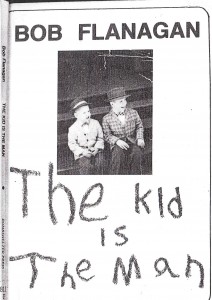
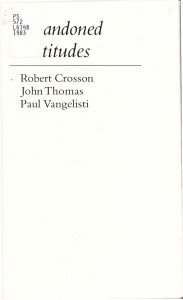
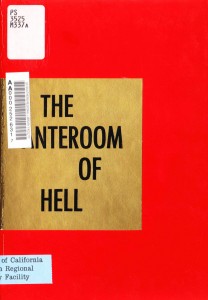

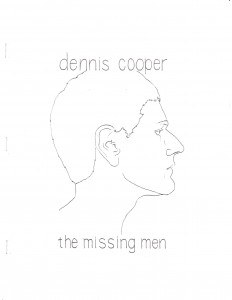

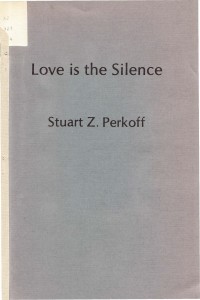
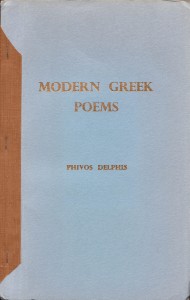
December 25th, 2009 at 5:35 am
That Guy de Cointet book is exquisite!